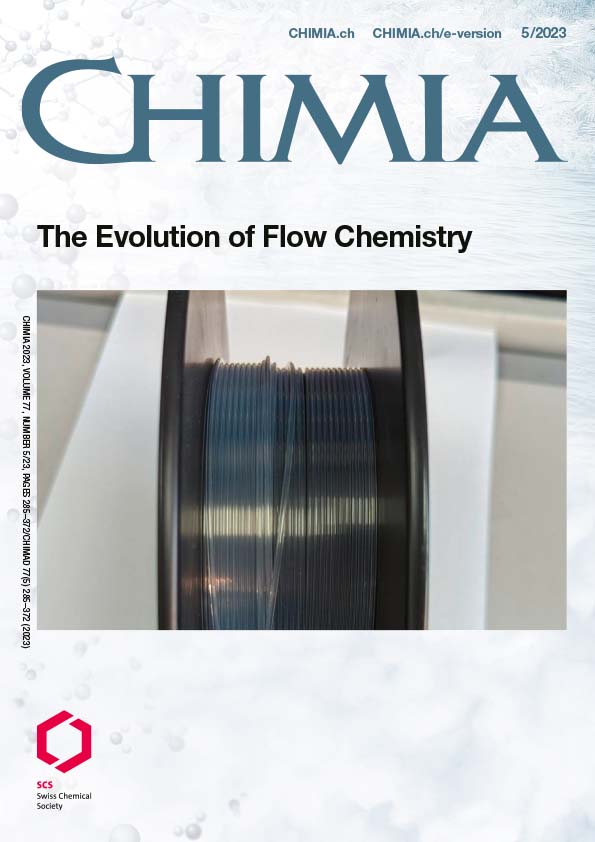Transforming Nanomaterial Synthesis with Flow Chemistry
DOI:
https://doi.org/10.2533/chimia.2023.312PMID:
38047827Keywords:
Flow chemistry, Microfluidics, Nanomaterials, SynthesisAbstract
Microfluidic methods for the synthesis of nanomaterials allow the generation of high-quality products with outstanding structural, electronic and optical properties. At a fundamental level, this is engendered by the ability to control both heat and mass transfer in a rapid and precise manner, but also by the facile integration of in-line characterization tools and machine learning algorithms. Such integrated platforms provide for exquisite control over material properties during synthesis, accelerate the optimization of electronic and optical properties and bestow new insights into the optoelectronic properties of nanomaterials. Herein, we present a brief perspective on the role that microfluidic technologies can play in nanomaterial synthesis, with a particular focus on recent studies that incorporate in-line optical characterization and machine learning. We also consider the importance and challenges associated with integrating additional functional components within experimental workflows and the upscaling of microfluidic platforms for production of industrial-scale quantities of nanomaterials.
Downloads
Published
Issue
Section
License
Copyright (c) 2023 Neal Munyebvu, Julia Nette, Stavros Stavrakis, Philip D. Howes, Andrew J. deMello

This work is licensed under a Creative Commons Attribution 4.0 International License.







